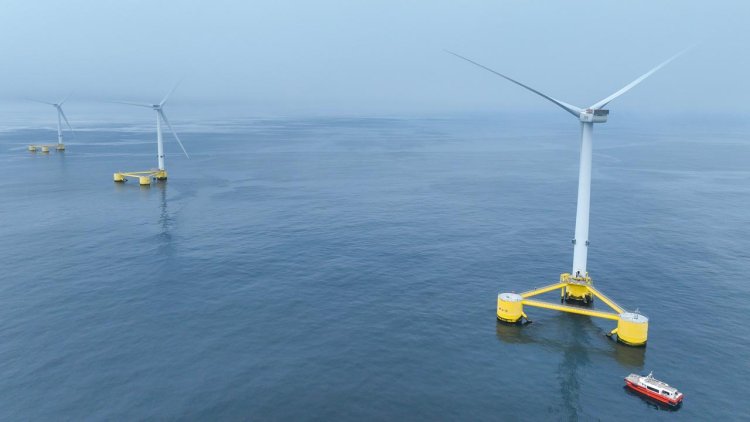New foresighting report calls for skills focus to meet UK floating wind targets
The UK Government has a target to generate 50GW in offshore wind by 2030, which includes 5GW of floating offshore wind.

A new report, published by the Offshore Renewable Energy (ORE) Catapult reveals the key skills needed for the successful future development of floating offshore wind farms around the UK, in line with net zero targets.
The ‘Supply Chain Capability Requirements for UK Floating Offshore Wind Farms’ report focuses on inter-array dynamic cable systems within floating wind farms, and the need for the UK to invest in skills to ensure it remains a world leader in the sector.
The UK Government has a target to generate 50GW in offshore wind by 2030, which includes 5GW of floating offshore wind. With 32,000 people currently in the offshore wind workforce, this is forecast to increase to over 100,000 people by 2030.
Andrew Esson, Skills Lead at ORE Catapult, said:
“The UK is a global leader in offshore wind expertise and installed capacity, and maintaining a strong pipeline of skills and talent is essential to maintaining this position.
“We need to see prompt action on developing course content, recruiting students, re-skilling and providing on-the-job experience now – in order to meet our net zero targets.”
The report highlights the need to consider the unique challenges of floating wind and the capabilities required across the dynamic cable system lifecycle, from design to manufacturing, installation, commissioning, and operation. It was delivered in partnership with Innovate UK’s Workforce Foresighting Hub, that works with the Catapult Network and Centres of Innovation to convene industry employers, educators, and domain specialists to assess capability needs and identify the skills needed to drive future growth.
Debbie Johnson, Head of Innovation Talent & Skills at Innovate UK said:
“The output reports from each workforce foresighting cycle, detail future supply chain capabilities, prototype future occupational profiles and deliver recommendations to drive action, to ensure that the UK continues to harness the potential of innovative technologies.”
Across education, the report concludes that modifying existing courses and degrees would be sufficient to meet future skills needs, but that more specialist, technical areas should be addressed through PhD sponsorships and industry engagement.
It also urges employers to ensure that development of experienced staff is linked to industry need, with an emphasis on up-skilling and re-skilling across different parts of the UK supply chain.
Recommendations from the report going forward include:
- Engage with key industry stakeholders to determine robust Workforce Demand Forecasts for High Voltage Dynamic Cables
- Work with Further Education, Higher Education, apprenticeship and training providers to initiate development of new training programmes to address the High Voltage Dynamic Cables technology challenge
- Develop a suite of education and training modules that support transferable skills across a range of HV electrical activities
- Pursue a rolling programme of Workforce Foresighting cycles to respond to industry challenges
RenewableUK is the industry sponsor of the ORE Catapult report.
RenewableUK’s Head of Skills Scott Young said:
“We’re pleased to sponsor this critical initiative aimed at addressing skills gaps in the offshore wind sector. As the industry moves towards building more floating offshore wind projects at scale, it’s essential to equip the workforce with the necessary skills and expertise. We’re looking forward to collaborating with industry stakeholders, ORE Catapult, and other partners to implement the proposed next steps outlined in the report and create a workforce capable of maximising the deployment of innovative floating wind technology as fast as possible.”


























